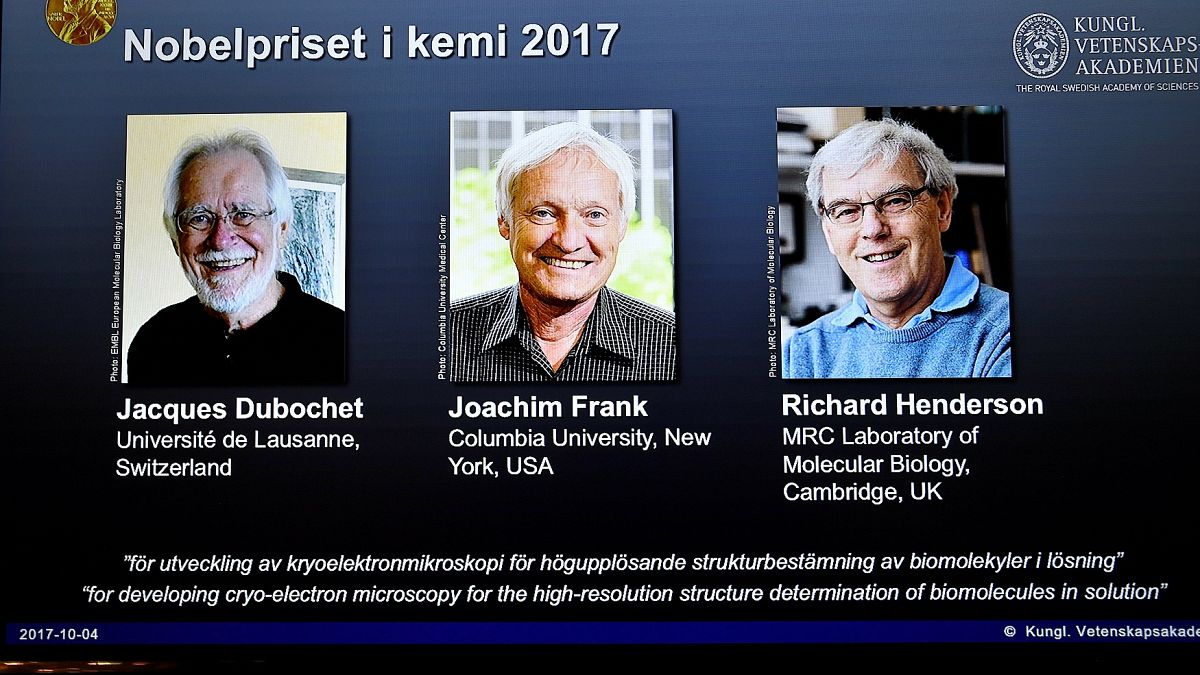A trio of Swiss, American and British scientists won the 2017 Nobel chemistry prize on Wednesday for developing cryo-electron microscopy, allowing researchers to see biological molecules frozen in action.
The work by Jacques Dubochet, Joachim Frank and Richard Henderson makes it possible to image proteins and other molecules after freezing them rapidly to preserve their shape, providing a powerful new tool for medical research.
“It’s like frames in a movie. Each of these pictures represents a frame and they can be put together into a movie and we can see what the molecules do,” said Peter Brzezinski, a member of the Nobel committee for chemistry.
The new approach fills a previously blank space by generating images of everything from proteins that cause antibiotic resistance to the surface of the Zika virus.
The Royal Swedish Academy of Sciences, which awarded the 9 million Swedish crown ($1.1 million) prize, said the technology had moved biochemistry into a new era.
By freezing biomolecules mid-movement, scientists can unravel previously unseen processes – a major advance both for basic understanding and the potential development of new drugs.
Scottish-born scientist Henderson used an electron microscope to generate a three-dimensional image of a protein at an atomic resolution, showing the potential of the technology.
Until then, electron microscopes were only seen as suitable for imaging dead matter, because the powerful electron beam destroyed the shape of biological material.
His breakthrough was further developed by German-born scientist Frank, a U.S. citizen, while Dubochet of Switzerland used rapidly frozen water to preserve the natural shape of the biomolecules.


